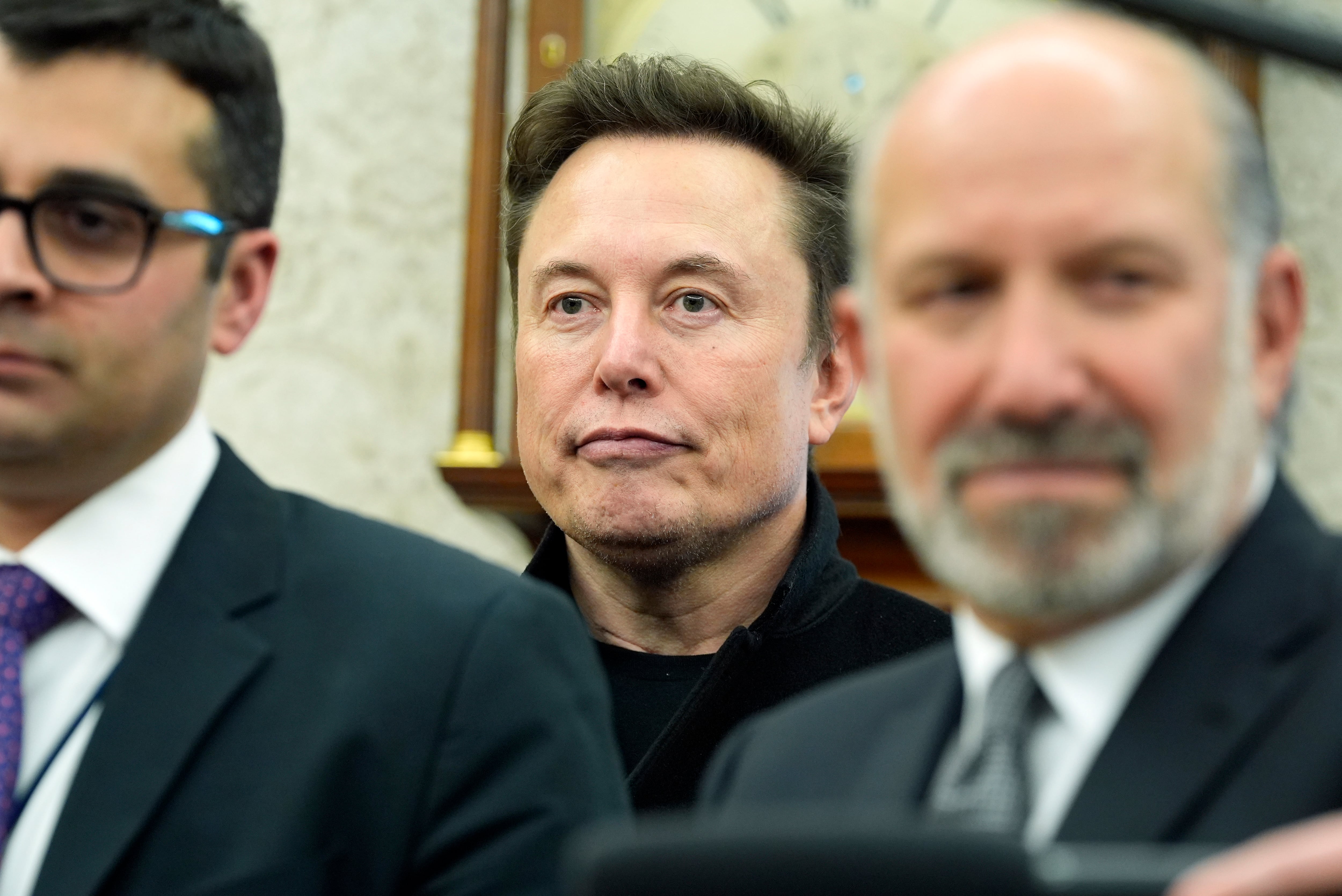U.S.-sanctioned terrorist organizations appear to be enjoying the perks of paid, premium accounts and verified blue check marks on the social media platform X, a potential violation of U.S. sanctions, according to a report published Thursday.
The social media giant has accepted payments from individuals who appear to be affiliated with Iran-backed Houthi rebels and the Hamas militant group, among others, for paid accounts in a move strictly prohibited by the U.S. government, said the Tech Transparency Project, a research organization that seeks to hold big tech companies accountable.
“The findings add to questions, first raised by [Tech Transparency Project] in February 2024, about X’s adherence to sanctions designed to protect U.S. national interests, even as the company maintains it has a ’robust and secure' approach to its monetization features,” the report reads.
People or groups sanctioned by the U.S. government are prohibited from engaging in transactions with U.S. companies, per the Treasury Department’s Office of Foreign Assets Control, or OFAC.
X’s terms of service states that the company is aligned with these restrictions and premium membership will not be granted to anyone sanctioned by the OFAC.
However, multiple U.S.-deemed terrorist organizations sanctioned by the OFAC have X Premium or blue check verified accounts, the report said.
Approval for blue check marks is granted only after the company exercises due diligence and individually verifies the account.
Prior to Musk’s purchase of X, formerly known as Twitter, individuals procured blue check marks, or verification, for free, after the company had verified the account.
But Musk instituted a pay-to-play approach in 2023, which drew the ire of many users and ushered in a new era in which premium features could be accessed only by spending money.
X Premium currently costs $8 per month, while X Premium+ costs $40 per month. Users must purchase one of the two to qualify for verification, which yields a blue check mark.
Accounts are given the status bump “after a review to ensure subscribed accounts meet all eligibility criteria,” according to X’s website.
U.S.-sanctioned terrorist organizations do not qualify for such services on paper, as OFAC strictly prohibits any transactions whatsoever between such entities and U.S. companies.
“These prohibitions include the making of any contribution or provision of funds, goods, or services by, to, or for the benefit of any blocked person and the receipt of any contribution or provision of funds, goods, or services from any such person,” OFAC said in a 2023 release.
RELATED

In November 2019, OFAC reached a settlement with Apple after the company disclosed that a Slovenian software company that violated Foreign Narcotics Kingpin Sanctions Regulations was peddling applications through its app store.
OFAC reduced the cost of the fine, based on the fact that Apple had informed the Treasury Department about the problem of its own volition, and the tech giant ended up paying nearly $467,000.
Tech Transparency Project’s new report comes more than a year after it published a report detailing how X accepted payments for premium accounts that appeared to be linked to U.S.-sanctioned groups, specifically Hezbollah, among others.
X removed check marks from the accounts described in that report after it was published, according to the Tech Transparency Project.
But the group’s new report claims X has not upheld that brief standard of account policing, as many other U.S.-sanctioned groups appear to have since slipped through the cracks and secured premium accounts or verification, while other previous offenders appear to have reupped their membership to X by creating a new account after their previous one was banned.
Some sanctioned parties can make money from the social media platform through a “tips” function, the report said.
Several key figures from U.S.-sanctioned terrorist organizations were given access to X’s premium services and benefits, the report claims.
Mahdi al-Mashat, chairman of the Houthi Supreme Political Council, was granted blue check verification a month after OFAC announced sanctions against him for purchasing and smuggling weapons for Houthis, said the Tech Transparency Project.
Subhi Tufayli, a Hezbollah founder, was given blue check verification in October 2023, the same month Hezbollah fired rockets into Israel after Hamas attacked Israel on Oct. 7. The account is branded with an “ID verified” badge, which can only be attained through a vetting process that requires a government-issued ID and a selfie.
OFAC sanctions against Tufayli began in 1995 for his role as a senior figure in Hezbollah, the report said.
Some accounts even reportedly made money through X, the report claims.
Gaza Now, a media outlet sanctioned in 2024 for its affiliation with Hamas, runs an alias account according to the OFAC, as reported by the Tech Transparency Project.
While the official Gaza Now X account no longer boasts a blue check mark, according to the report, the alias account was given a verification check in June 2024 after U.S. sanctions were announced.
Despite OFAC labeling Gaza Now as an entity engaged in “fundraising efforts to support Hamas,” the alias account utilizes a subscribe button, which allows it to raise money.
Only X Premium users have access to this feature, which requires an application, according to the report.
X receives a portion of a premium user‘s subscription earnings.
Riley Ceder is a reporter at Military Times, where he covers breaking news, criminal justice, investigations, and cyber. He previously worked as an investigative practicum student at The Washington Post, where he contributed to the Abused by the Badge investigation.





